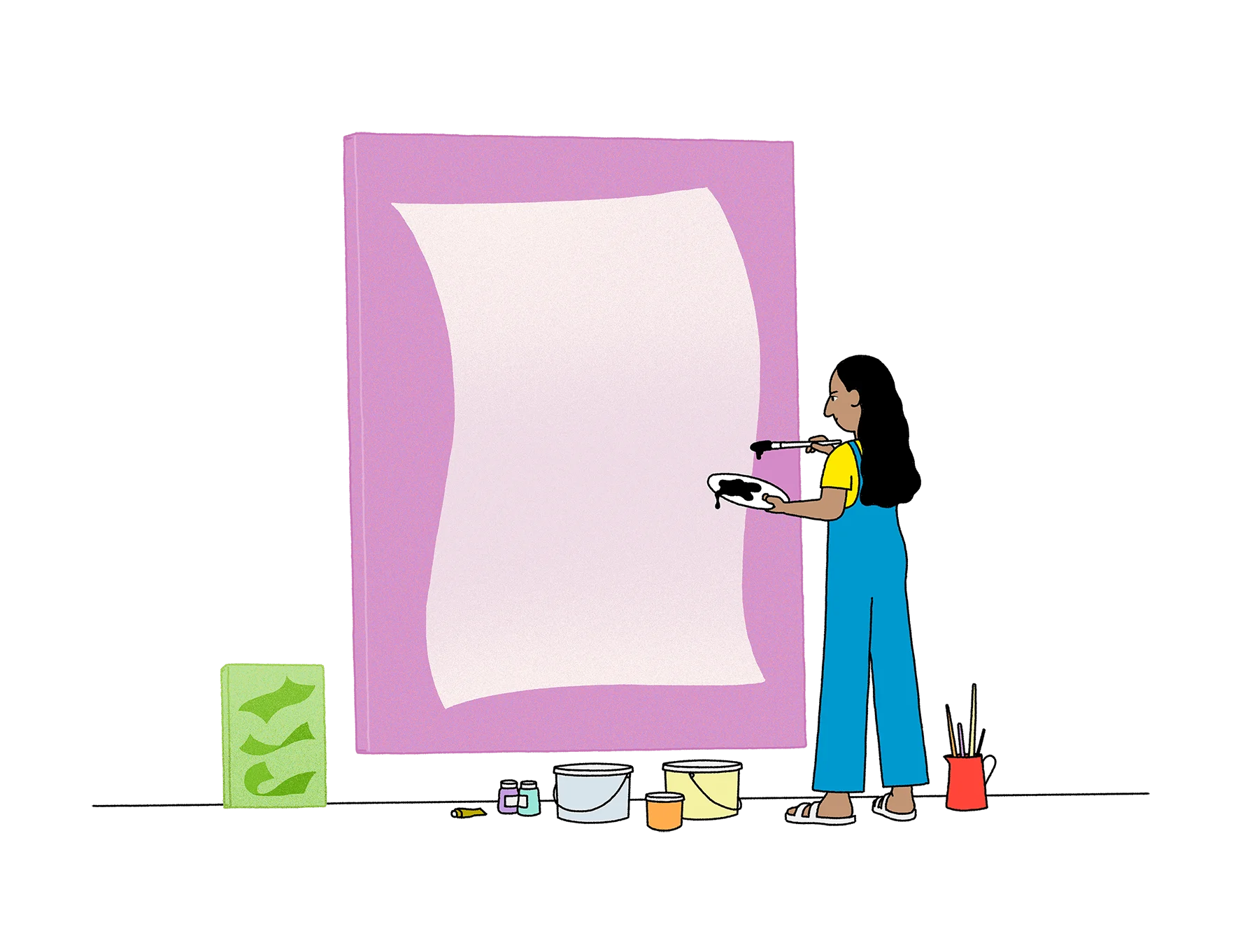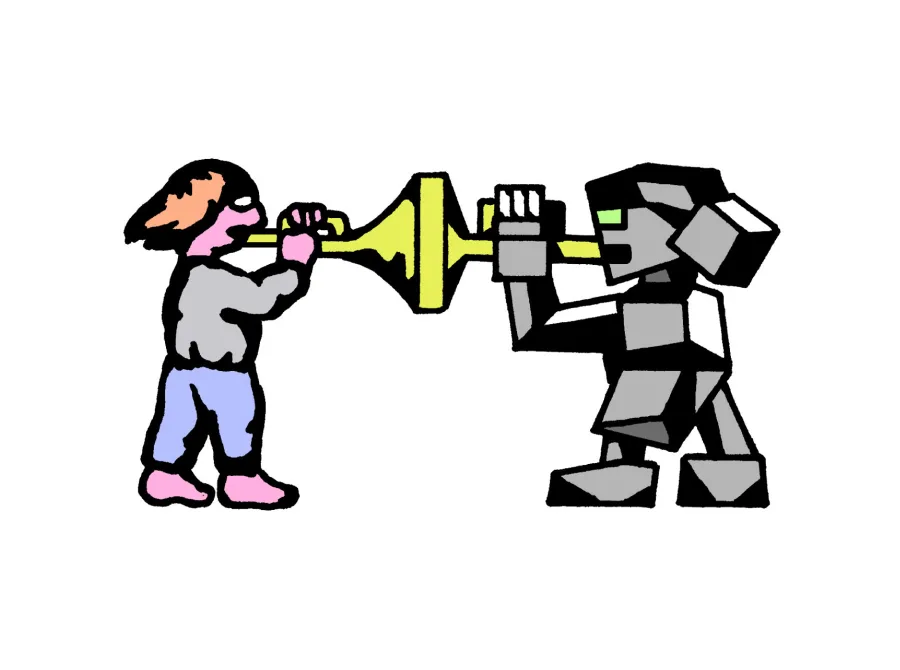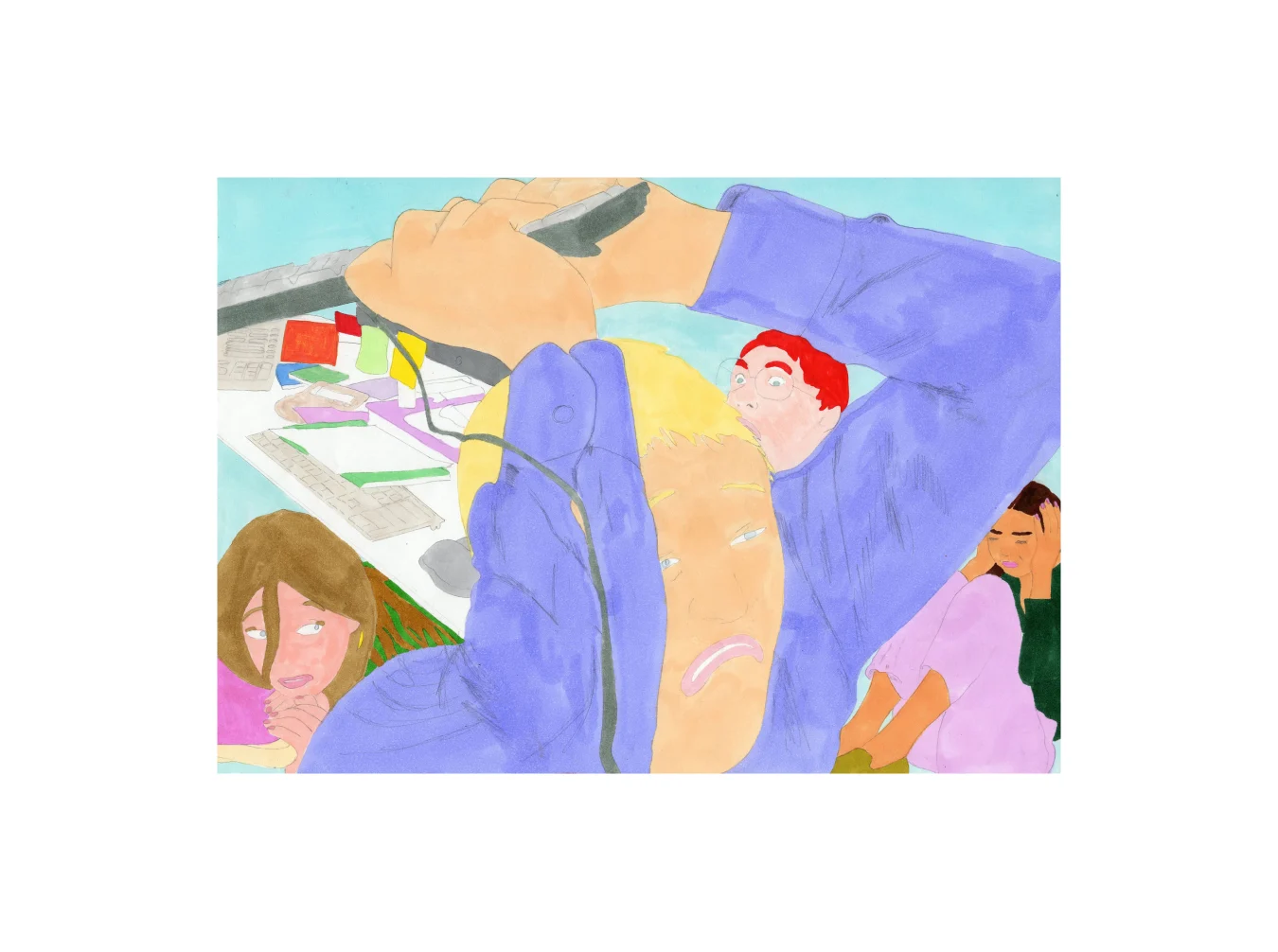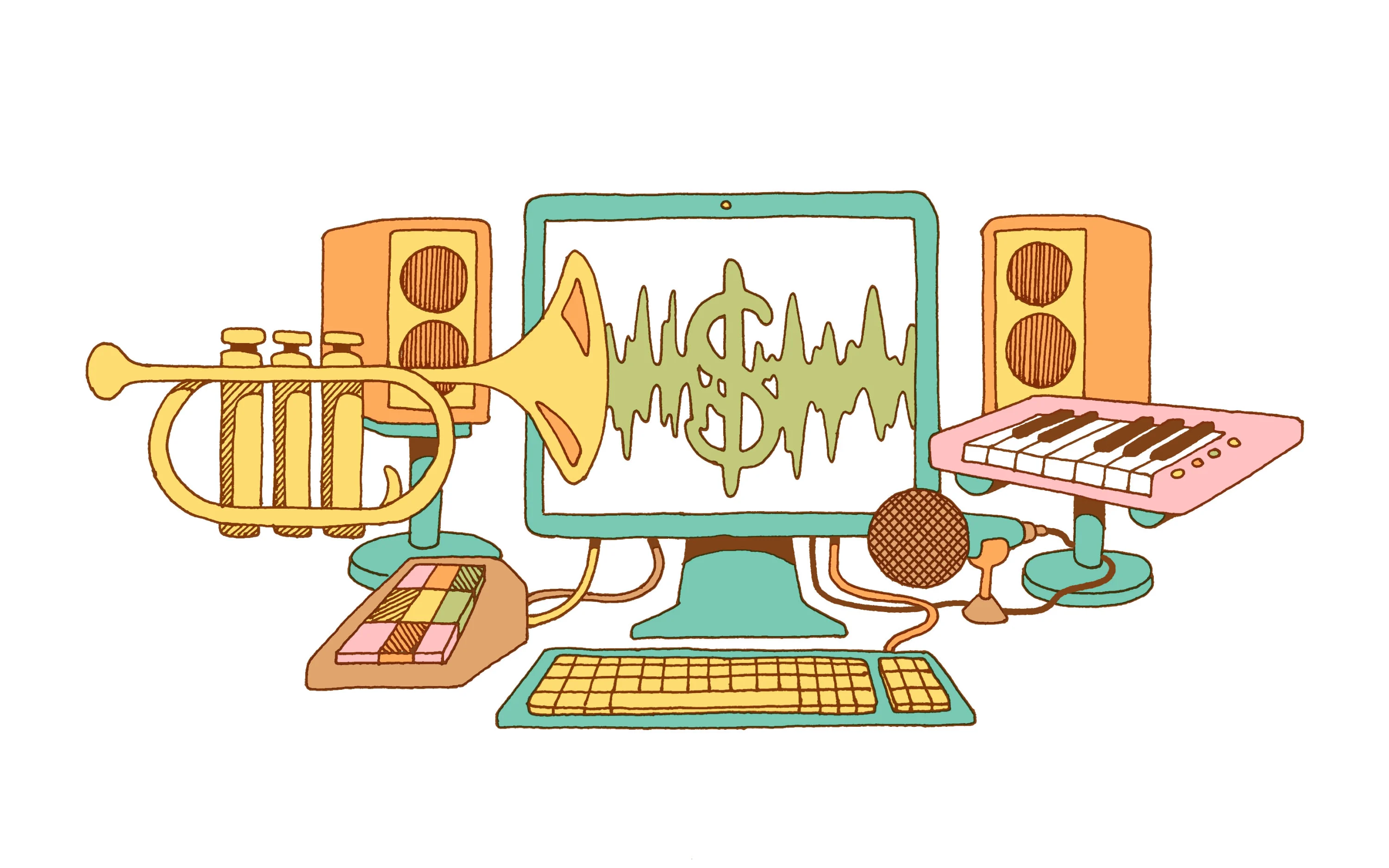

There are lots of things for creatives to think about beyond having good ideas. We’re here to help, with our advice series Stuff They Don’t Tell You. Here, James Cartwright looks at how money could, and should, flow in and out of your small business or freelance operation.
Illustrations by Laurie Rollitt.
Most creatives don’t set up their own thing because they get excited about spreadsheets. But the more you understand about how business works, the more likely you are to avoid simple mistakes (and the more time you should have to spend on the things that really matter).
That does mean there’s some business jargon to wrap your head around (hurrah!), but don’t be frightened. The aim is to give you a working understanding of how best to manage your money, and knowing a little bit of the lingo can really help.
“It's a bit like when you go on holiday,” says finance director and numbers coach Johnny Martin who runs regular advice sessions for small businesses at the British Library in London. “You learn to say hello and thank you to the locals. You don't have to be fluent, but it means you can communicate, so when you're talking to the bank or an investor you can speak their language.”
As far as Johnny is concerned, the mechanics of business are pretty straightforward. “You've got to sell things for more than they cost. You’ve got to have enough cash in the bank, and you've got to keep track of what your business earns and owes.” If any part of this goes wrong, then your business can quickly come unstuck.
Of course, payment isn’t always in your control and it can be a ridiculous ordeal just to get paid for work you’ve already done. “Big companies are not good payers,” says Johnny. So we’ll also look at some strategies for making sure you get paid on time too. Let’s go!

1. Get your personal finances in order
“More businesses are messed up by the owner's finances being out of control than the business’ finances themselves,” says Johnny, “and it’s something that’s often ignored.
“You need to take care of your personal budget, what I call the bare bones: what you need to live on, pay the rent or the mortgage, and all the boring stuff. It's true that when you're starting out, things cost twice as much and take twice as long, so be sure you've got enough to pay your way.”
If you’ve got a handle on your own bank balance, taking care of your business will be that much simpler.
2. Get a budget worked out
Which brings us neatly onto the next point: work out your budgets. By now you should know how much you spend on your monthly outgoings and therefore how much you need to earn to cover them. Ideally, you’ll then have enough left over to treat yourself. But be careful; this is where things could get out of hand. Be careful how much you treat yourself.
If that’s not your style, let your bank do it for you. New online banks offer great ways to keep your personal finances in check, and it’s worth signing up with Monzo, Atom Bank or Starling to keep a closer eye on what you spend. They’ll allow you to cap your spending on certain items and set targets from month to month.
Once you know what things cost in any given month, you’ll have a clearer idea of how to charge for your services. This is the basic method for working out how to make a profit.

3. Learn to forecast
You’re now in a position to plan out your working year, booking in projects, agreeing fees and working out payment schedules based on a clear understanding of how much you’ll need to earn.
“The most important thing is to make sure your business has a cash flow system which clearly shows the money coming in and out,” says Johnny. “Have that going at least nine to 12 months into the future. Give yourself enough time so you can take action if it shows you're running out of cash.”
If you don’t do this you could easily run out of working capital (what you have minus what you owe), and you can’t do business without that. That’s kind of one of the rules.
4. Check your finances regularly
Keeping on top of what you owe and what you’re owed is half the battle of staying in business, so set aside time to review your accounts and make sure everything’s in good shape.
“You need to get into a routine,” says Johnny. “Every Friday, look at your financials using a checklist. What money has come in at the bank? Who still owes you money? What contracts haven't been agreed yet? Going through this stuff every week is important.”

5. Draw up a standard contract
I know a lot of freelancers who don’t use contracts for the work they do. Which is alarming. They’re not essential (a verbal or written agreement is usually sufficient to secure your right to be paid for whatever you do) but when it comes to getting paid, they’re certainly a big help.
In a contract you can specify your own terms of payment before you start work. That might not be so important on a small or short-term project, but for anything with a longer timeline or multiple stages of deliverables, getting paid in stages and on time is going to be vital. Use your new forecasting skills to specify how and when you need to be paid by a client. They’ll probably take you more seriously if you do.
6. Find out how your clients pay
Some clients – often the big ones – have large finance departments and complicated, inflexible methods of payment.
“Most of the time freelancers don't really understand how a big company's accounts department works,” says Johnny. “You’ve got to have the purchase order number. It's got to be in the right format. It's got to be on a professional invoice, generated by some accounting software. All of that will just help get your invoice paid quicker.
“The oldest game in the book is for them to tell you that their standard payment policy is 60 days.” But if you know that well in advance, it won’t be an issue. So get acquainted with how your clients pay.

7. Know your rights
The great thing about payment terms is that, if you lay them out clearly, you’re entitled to extra money, or late payment fees, if the terms are broken. The rate you can charge varies from country to country, but if a client keeps you waiting on a payment then send them an updated invoice with the interest included. They’re legally bound to pay these fees, so don’t be afraid to speak up.
“Clients tend to pay those that shout loudest,” says Johnny. “So you have to invest the time and energy.”
8. Fuck you, pay me
Some clients can be really, really difficult when it comes to payment, and we’ve all had one or two that have caused us unbearable stress. The key thing to remember is that if you’ve done the work, you’re entitled to the money, so never feel like you need to beg to be paid. If you’re at your wit’s end, this can be a useful mantra to chant when you’re dealing with a particularly tight-fisted client. So repeat after me...













